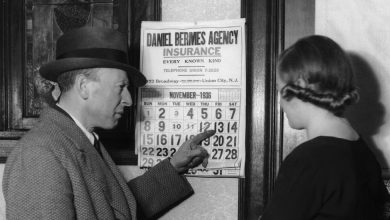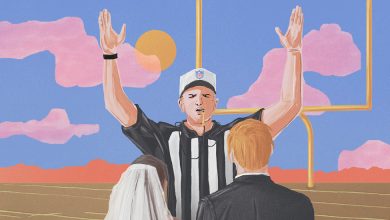The Psychic Contortions of the Black Mogul-Entertainer

Listen to This Article
Audio Recording by Audm
To hear more audio stories from publications like The New York Times, download Audm for iPhone or Android.
The story is so good it hurts to hear. In an era of stupefying inequality, one of the most famous members of the upper class is a former drug dealer from a notorious public-housing project. He switched the product and rode CD sales to a new ZIP code. He went from nobody to somebody to a fixture in public consciousness who hangs out with a former president. If you’ve been rapping along with Jay-Z since “Reasonable Doubt,” or maybe even his feature on the early Jaz-O single “Hawaiian Sophie,” you’d be forgiven for seeing that star scream across the sky and thinking his song was right: There’s nothing you can’t do.
But when the force of his flow isn’t in your ears, what he did seems impossible once again. He is not just rich; he is, according to Forbes, a billionaire. Rappers aren’t supposed to make that much money. For starters, part of the job is knowing how to spend it, and Jay-Z has done plenty of that. But also, rappers, like athletes, tend to have short careers — the genre reinvents itself too quickly for elder statesmen to hang on. And it is a cutthroat business. Get rich or die trying is the injunction for this heady mix of the mostly male, mostly Black, cocksure young musicians rehearsing punch lines in the nation’s ghettos, where making it very well might be a matter of survival. It is a dreamer’s music, by necessity. But more than four decades into the genre’s reign, there are levels now. Some artists get paid. Others acquire capital.
This is an uncomfortable situation. According to a recent survey conducted by the Federal Reserve, the median family wealth for Black households is $24,100. (The median white household has nearly eight times that.) Somewhere in that data set are eight Black American billionaires, at least according to the Forbes list. Whether your politics lead you to believe that these eight are inspirations or a problem, the last several centuries of history might lead you to ask how it is even possible they exist. Four of them — Oprah Winfrey, Jay-Z, Tyler Perry and Kanye West — made their names as entertainers. (There’s also Rihanna, who is a resident of the U.S. but not a citizen.) Rapper, as an occupation, appears more frequently on this short list than an Ivy League education does.

Credit…Photo illustration by Ryan Haskins
It is a strange fact of this country’s economic system that the most common way for Black people to become obscenely wealthy is to first become obscenely famous. Among other things, this means that much of their net worth is tied to the value of their public personas in ways that do not hold true for other billionaires. Whatever you think of Stephen A. Schwarzman, Miriam Adelson or even Bill Gates, their wealth is untethered to their Q Scores. Of course there are outliers. Elon Musk does relish playing to the crowd as the enfant terrible of auto manufacturing, generating an insulating admiration from his fans, but Kanye and Jay-Z are truly in a bind.
For as long as it has existed, rap was, or was supposed to be, the crafted but splenetic outpouring of the dispossessed. At the same time, it has been about a life that most of its listeners cannot lead, but it held on, however tenuously, to its lower-class roots. Jay-Z always rapped as if he had the planet in his palm, even when it was really just a few blocks in Brooklyn. Over the years, he really did gain the whole world. And now a globally popular form of working-class youth music has, as its most powerful representatives, a pair of billionaires in their 40s and 50s. It has not been an easy balance to strike.
Entertainers occupy a curious position where the lines between worker and owner sometimes blur. Rappers are signed to labels and then often open their own. Some of these labels collapse, often in a wave of recriminations about shady business practices. The contracts can control artists’ entire output, leaving them almost entirely dependent on the label to actually make something of their labor. Maximize revenue, cut labor costs. That, more than all the drug dealing said to take place, is the business world that produces many of these rappers. And they have, as often as not, leaned into this ethos. When they promise you that they’re reciting what they know, it is not really a reference to some social truth ripped from the depths of poor, Black neighborhoods. What they know is capital: What it is to have none, what it is to get a taste, what it takes to try to make peace with winding up on the other side of that divide.
From the beginning, Jay-Z was a businessman. His debut album was released on the auspiciously named Roc-A-Fella Records, which he founded with two friends, Kareem Burke and Damon Dash. It made sense to have a piece of the action, because he helped popularize Mafioso rap, which took the bleak air of street-corner hustling and gave it the baroque mystique of gangster films. If there had not been a Black James Cagney or Francis Ford Coppola, there was at least a Shawn Carter. But the business world is brutal, inside and outside the law.
At its peak in the ’00s, Roc-A-Fella featured a stacked cast: Just Blaze on production; the Philadelphia icons Beanie Sigel, Peedi Crakk and Freeway; the sprawling Dipset crew in Harlem; a young producer from Chicago named Kanye West. When Cam’ron appeared on the show “Rap City” in an oversize pink T-shirt, counting off a large pile of bills while freestyling that he’d “seen all islands, Cayman to Rikers,” it seemed unfathomable that the Roc era would ever end. But in a few years, Def Jam bought out the label’s founding partners and appointed Jay as the umbrella corporation’s president. Fights over shelved albums, loyalty, blocked promotions and due credit broke up what had looked like a street family.
This led to a peculiar situation in which boardroom drama spilled out in the form of diss tracks by Def Jam artists aimed at their employer’s lead executive. Roc-A-Fella eventually folded. But still, to this day, Jay-Z owes much of his image as a business magnate to the dynastic sheen his labelmates gave “the Roc,” not to mention the marketers, graphic designers and interns that made them icons of New York street swagger.
Jay diversified his portfolio in the years after that. He has a stake in Oatly, two separate highly valued liquor companies — Armand de Brignac Champagne and D’Ussé Cognac — several homes, the streaming platform Tidal, a club near Madison Square and an expansive art collection. If on his debut he spoke a little beyond his means when he said he was “well connected,” he has made it true. It is hard to think of a door he cannot open. Even as he has outgrown what made him Jay-Z, that project remains central to his business. He is the best rapper alive, the entrepreneur who made it out of the projects, the kingpin. The albums remind you why the Cognac is worth so much money.
This situation is not unique. In the entertainment world, people must become corporations if they want to become truly wealthy. High-profile singers, athletes, actors and so on often make their real money from endorsement deals rather than their day jobs. What separates the billionaires from their peers is that they turned endorsements into equity. Michael Jordan gets a percentage of Nike’s Jordan brand revenue. Kanye, who owns the Yeezy brand outright, has major deals with Adidas and Gap. Winfrey and Perry have sprawling media concerns. Rihanna’s Fenty Beauty is a subsidiary of the LVMH luxury conglomerate.
Many of these businesses could keep running without their famed figureheads, but the sheen would dissipate somewhat. Dell does not sell its computers by trading on the fact that it and its founder share a name. But without Kanye’s imprimatur, it’s hard to imagine Yeezy’s moon-boot look becoming a default sneaker silhouette. Fenty, by contrast, seems to have capitalized on a real gap in the market by broadening the available shades for foundation and concealer. Still, the entertainer-billionaire is as much the product as the shoe or concealer up for sale. From the outside looking in, this seems like a shaky foundation for a fortune so vast. Stars lose their luster all the time. It’s part of their appeal.
On “The Story of O.J.,” from his latest album, “4:44,” Jay-Z raps about the psychic drama of successful Black Americans. In the animated video, his character tells his therapist that he failed to invest in Dumbo real estate early and missed out on a 1,250 percent return. Later he explains that art he bought for $1 million appreciated in value and is now worth 8. The song weaves back and forth between an examination of racial stereotypes and a guidebook to gaining freedom through asset ownership.
You could hear Jay-Z, over time, growing more comfortable with his newfound status. On “The Black Album,” he rapped, “I can’t help the poor if I’m one of them, so I got rich and gave back, to me that’s the win-win.” It’s a defensive sentiment. The poor do help one another; there is often no other choice. That song is called “Moment of Clarity” — but nothing seems very clear at all. All the old signifiers, the ones linking public prominence and political progress, are slipping. They have to be reasserted from the top down. “What’s better than one billionaire? Two. Especially if they from the same hue as you,” Jay-Z rhymed on “4:44.” The ghetto’s music is starting to sound like prosperity gospel. Rap is relatable because the fan embodies the rapper. The “you” is rarely the listener, rather an invitation to adopt a new “I.” That “I” might get high, duck, dive, sling, get shot at and shoot back. But who is this “I” who accumulates such an immense sum of money, he starts to see things from the other side while insisting we’re still the same? The hue tells me nothing about what you’ve become.
For once, through drive and circumstance, a few Black artists actually stand to be the main beneficiaries of the popularity of Black culture. On paper that might be progress. But two things remain clear: Black art sells, and wealth collects. Money pools in rooms that remain hard to get into. Years ago, Forbes magazine organized a meeting between Jay-Z and Warren Buffett, treating the rapper like the heir apparent. They both spoke about the role of chance. Buffett talked at length about being white, male and born in the U.S. at the right time. It was the discourse of what we would now call “privilege,” which feels like an understatement when talking about one of the wealthiest men alive. When Jay-Z spoke, he told a story about a nearly inseparable friend of his who was arrested during a sting operation. Jay-Z happened to be out of the country for an early recording date. His friend was incarcerated for over a decade. That’s luck, the vicious kind that fortunes are made of.
Blair McClendon is a writer, an editor and a filmmaker in New York. His writing has appeared in n+1, The New Republic and The New Yorker.





